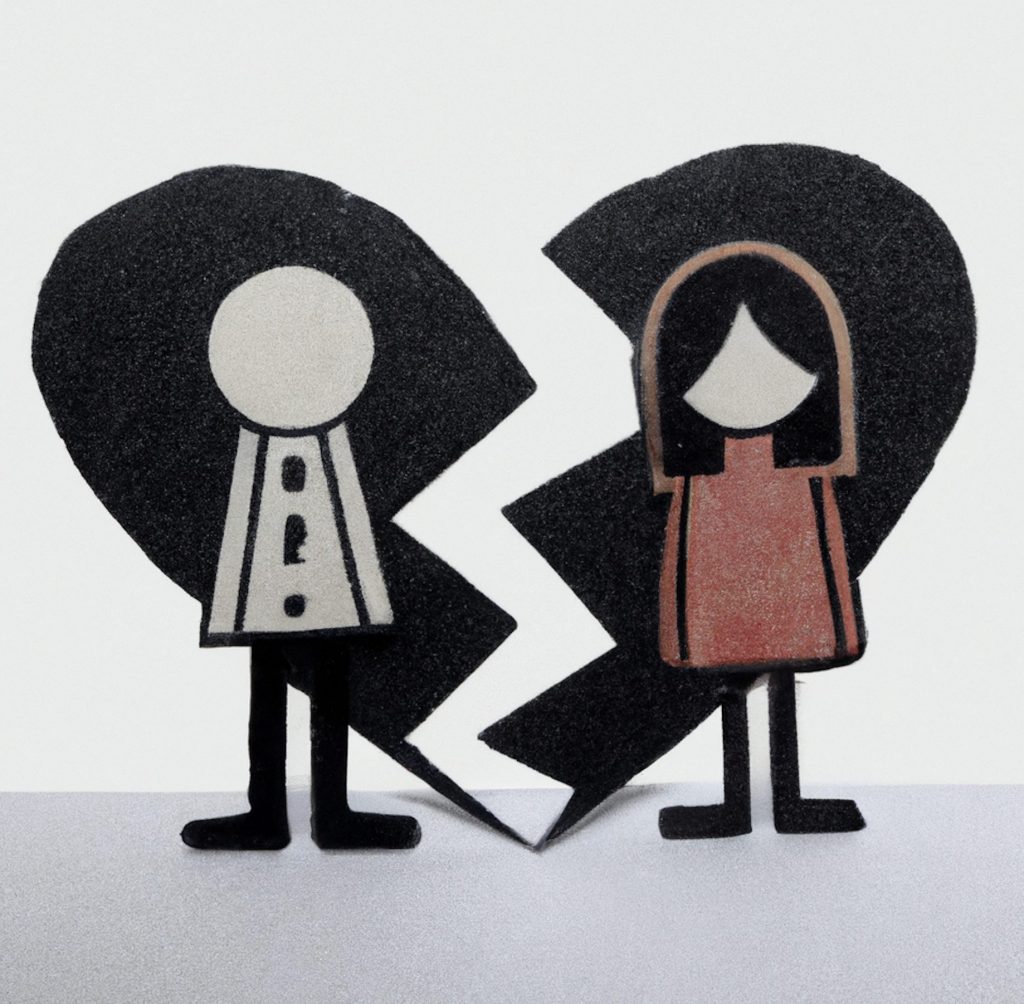How can you tell if a Past Trauma is hurting your relationship?
These days, there is no end to the pressures on our relationships. We blame our jobs, our families, our differences. But the reasons why a relationship ends are always far more complicated. Of course, each situation is unique and filled with specific details. However, in a bigger picture sense, almost all relationships are impacted by a few general underlying factors. One of these factors is past trauma. It’s a common catalyst for marital strife but not easily identified as such. Past trauma manifests in surprising — even sneaky — ways. Until its influence is identified, it will continue to do damage and create relational discord. Learning more about trauma can be a giant step toward a healthier relationship.
What is “Past Trauma”?
Past trauma refers to deeply distressing or disturbing experiences that occurred in a person’s past. Obviously, from the two words in the phrase, you can discern the basic meaning. But, to be more clear, past trauma is most frequently used to discuss events that took place in your childhood. However, your “past” may far more recent than that. While trauma is to be defined by each individual, a range of common categories exists to help understand the word. These categories include:
- Abuse: emotional, physical, and/or sexual
- Neglect: emotional and/or physical
- Bullying or harassment
- Household crises, e.g. substance abuse, domestic violence, incarceration, separation or divorce, mental illness, etc.
- Death of a loved one
- Injury, illness, and/or disability
- Enduring a crime, accident, natural disaster, homelessness
The human brain is equipped to handle stressful situations, and it often activates a “fight, flight, or freeze” response when faced with threats. However, when these threats are too overwhelming or prolonged, the brain may struggle to process the experience, leading to trauma.
Individual reactions to trauma can vary widely. Some people may develop post-traumatic stress disorder (PTSD), while others might experience anxiety, depression, dissociation, or other trauma-related symptoms. The impact of trauma can persist for years or even decades, affecting a person’s relationships, work, health, and overall quality of life.
Generally speaking, if any of these traumas occur in your childhood, the impact may be deeper and longer-lasting. Even so, regardless of timing, these categories of trauma can cause serious problems well into the future. That includes relationship stress.
How to Tell if Past Trauma is Impacting Your Current Relationship
Unexplained or “Unprovoked” Conflict
Someone struggling with trauma is often also dealing with Post-Traumatic Stress Disorder (PTSD). This condition can cause nightmares, flashbacks, hyper-vigilance, avoidance, dissociation, and more. In this state, your partner may behave in what feels unpredictable to you. Small things that your partner does, which might be innocuous in themselves, can trigger intense emotional reactions if they remind you, even subconsciously, of a past traumatic event.
Reduced Intimacy/Loss of Trust
Past trauma makes it hard to trust again. With PTSD, you do not want to feel vulnerable. Unfortunately, this can appear to your partner like emotional and physical distance. Physical intimacy will begin to decrease. Your partner might shy away from sharing their emotions. Overall, they may feel disengaged and detached. This can build resentment and further whittle away at your collective trust.
Fight-Flight-Freeze
When you struggle with PTSD, you’re sort of stuck in fight-flight-freeze mode. You can’t let your guard down and respond to almost any stimulus as if you are under attack. Here is how each response may appear:
- Fight: Behavior could be somewhat passive-aggressive, e.g. subtly controlling your behavior, making a progression of demands, or grudge-holding. In the more directly aggressive reaction, the fight response results in an expression of rage, blame, or contempt. At peak escalation, you run the risk of verbal or physical abuse.
- Flight: This is where the passive-aggression rules the day. Your partner will withdraw, isolate, and avoid. If pushed to engage, they may do something impulsive or simply run away from the situation.
- Freeze: Does your partner ever shut down? If so, they may be stuck in freeze mode. The only safe choice, in their minds, is to disconnect so as to avoid the sensation of being helpless.
How to Start Making Things Better
Past trauma is complicated and can be frustrating. Whether you are processing it or dealing with its impact, you will need guidance. Whether it’s via individual or couples counseling, recovery and healing are possible. If any of the above signs and behaviors feel familiar, you’d be well-advised to seek help. Consider the following steps to help you improve:
Acknowledge the Trauma: Recognizing and accepting that you’ve been through trauma is the first step to healing.
Open Communication: Talk to your partner about your feelings and experiences. It’s essential they understand where you’re coming from, so they can support you.
Educate Yourself: Understanding trauma and its effects can help you make sense of your reactions and feelings.
Practice Self-Care: Engaging in activities that make you feel good and help reduce stress can be therapeutic.
Set Boundaries: If certain situations or behaviors trigger trauma responses, communicate these boundaries clearly to your partner.
Trauma Therapy in the Denver Area
Trauma therapy can be an effective way for individuals to process and cope with the effects of trauma. If you or someone you know has experienced a traumatic event, consider seeking the support of a qualified trauma therapist who can help guide you on your healing journey. To get started, you can email us, use the contact page, or call 720-551-4553 for a free, 15-minute phone consultation. You can also read more about our Trauma Therapy services on our Trauma Web Page.
Self Care Impact Counseling envisions a new age of counseling for adolescents, adults, couples & groups that makes a REAL difference with core values of GROWTH | BALANCE | COMPASSION | INNER HARMONY.

